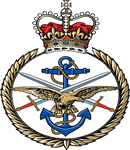 |
Battle or Action:
SS Artist, Sinking of
|
 |
Detail : |
| "Sir In the case of the Artist (3,570 tons) little short of a miracle accounted for the survival of nine of her complement of thirty- five men. January 27th was a dirty day in the North Atlantic, and as the Artist (master, Mr, G. Mills) drew in towards the Fastnet, she encountered the full force of an easterly gale which swept her from stem to stern. She had battled her way across the Atlantic, having been hove to for three nights and two days, and it may well have seemed to Captain Mills and his little company that in weather which had so severely tested the seaworthiness of their big ship no smaller enemy craft could live. But about 8 o'clock in the morning the confused noise of wind and sea was drowned by the sound of an explosion. A torpedo had torn a great hole in the vessel on the starboard side. It was soon apparent that, in such a sea, the damaged ship could live only a few minutes. It was a desperate situation for all on board, for as they turned to the task of launching the boats water poured over the decks as the Artist began to settle down by the head. But these men were not to be easily daunted, and all three boats were in a few minutes safely in the water and the stricken vessel was deserted. The master, with the second and third officers and a portion of the crew, was in one boat, the chief engineer was in charge of another, and a cadet was put in control of a third : and it was the last of these boats which survived the ordeal. The chief officer with his companions disappeared almost at once in the raging tumult of the waters. But Captain INIills and the cadet managed to get clear of the doomed ship, and throughout that day, with sea anchors laid out, they drifted. Throughout the night the gale increased in violence, the thermometer dropping to 37 Deg. Those who have never spent a night in mid-winter in an open boat cannot by any stretch of imagination picture the horrors which these men endured as they devoted themselves to the task of baling out the water which broke over the gunwales. Wet to the skin and cold to the marrow, they must have realised how wellnigh hopeless was the prospect that they would survive. By the following morning nothing was to be seen of the captain's boat ; it had disappeared, and nothing was ever heard of it or its occupants. The cadet and his little group of companions alone survived. They were the sole remnant of the forty-five men who had put out on the voyage. They knew that the wireless operator had sent out a call for help when the Artist had been struck, but what prospect was there that help could reach them in such weather ? Moreover, though the Artist had been sunk fifty-eight miles W. 1/2 S. from the Smalls, the position of their little boat as she had drifted hour by hour was unknown to anyone. Throughout the Sunday, all the following day, and until long after dawn on the Tuesday, the boat was at the mercy of wind, tide, and wave. Men died and their bodies were committed to the deep ; others sustained various injuries, and all suffered the agonies of cold, wet, and physicaland mental exhaustion. Were there not overwhelming official evidence, as well as the narratives of the survivors, it would be almost past belief that any men could have existed throughout those three days and three nights. But, at last, the wind dropped and the sea began to subside. With unspeakable relief their tired, overstrained eyes picked up in the far distance lights which spoke of land being nigh. A short time afterwards a steamer outward bound bore down upon them, but there remained of the original crew of sixteen persons only ten in the boat, and one of these was rigid in death. In calmer seas it proved a simple matter to transfer the survivors to the patrol-boat, and thus in due course they were conveyed ashore to receive at the hands of the Shipwrecked Mariners' Society the succour of which they stood in such dire need. A brief account of the sinking of the Artist was issued shortly afterwards by the Admiralty, and in this statement it was remarked that "the pledge given by Germany to the United States not to sink merchant ships without ensuring the safety of the passengers and crews had been broken before, but never in circumstances of more coldblooded brutality." A new chapter in sea warfare without parallel in history had already opened." The Merchant Navy (Volume 2) - Hurd, Archibald, |
|
FIRST PREV ( Page 1 of 1 ) NEXT LAST
|